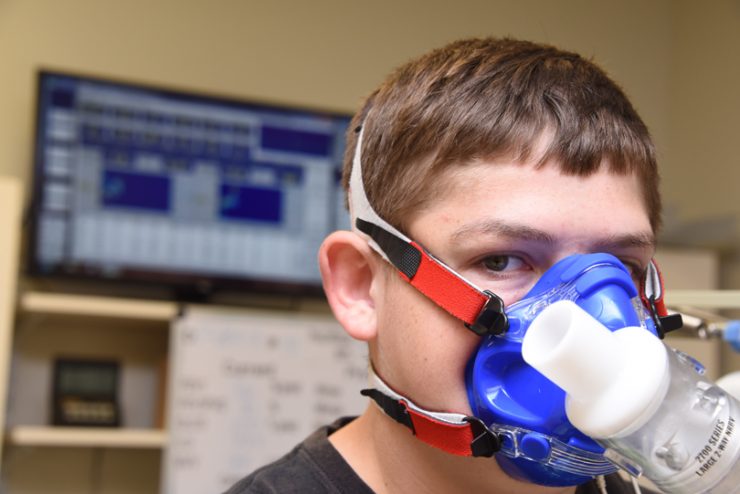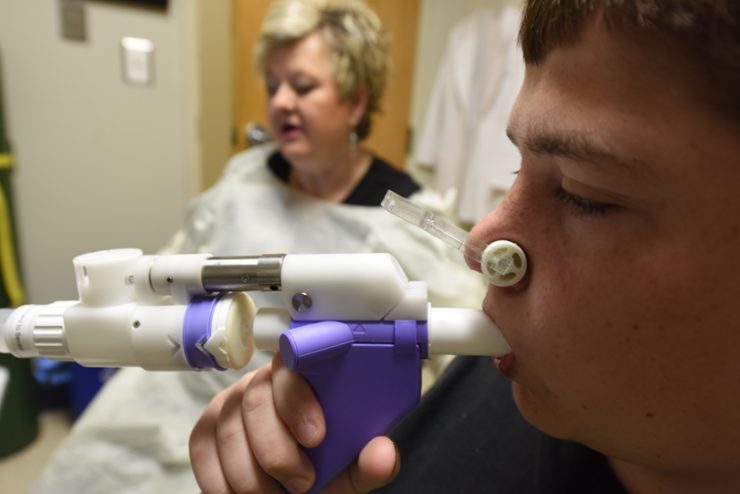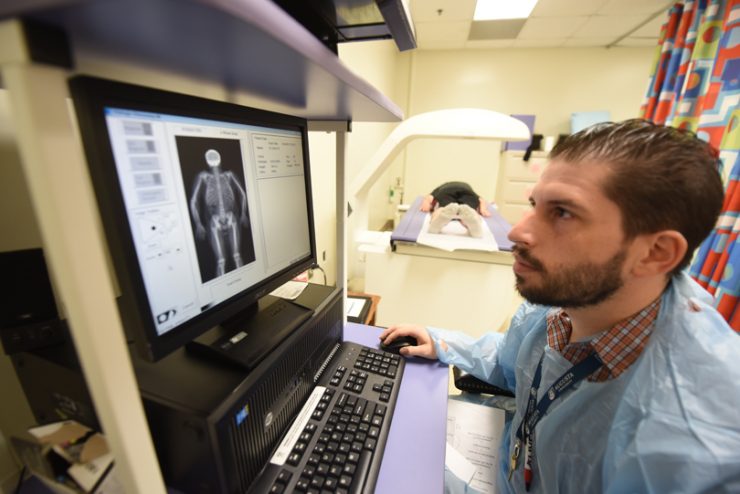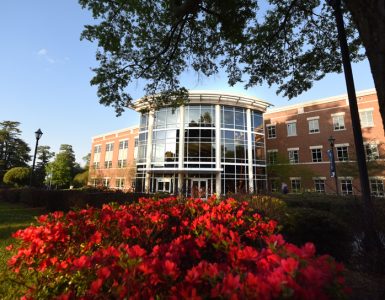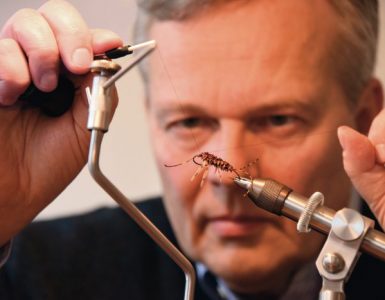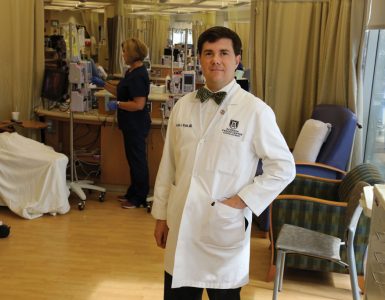It’s early on a weekday, and while his classmates are starting their school day, 15-year-old Damon Jenks is checking in at the Georgia Prevention Institute at Augusta University. Though most kids would never dream of spending more time with doctors than absolutely necessary, Damon, a cystic fibrosis patient, actually wants to be here.
“He was the one who asked me – ‘Momma, when’s Dr. Harris going to do some more studies?” says Sabrina Jenks, Damon’s mother.
Since Damon had an appointment at the Augusta University Cystic Fibrosis Center anyway, Jenks checked with Dr. Ryan Harris’ office and enrolled him in an antioxidant study funded by the Cystic Fibrosis Foundation.
Cystic Fibrosis (CF) is a genetic disease that attacks the lungs and digestive system. In the 1950s, patients rarely survived beyond elementary school, though now, thanks to advances in treatments and research, the median predicted survival age is around 47.
As part of his ongoing research, Harris, the director of the laboratory of integrated vascular and exercise physiology at the Georgia Prevention Institute (GPI), has been studying cystic fibrosis patients since 2009.
“The focus of my research is trying to understand vascular dysfunction in various populations,” he says.
When he first came to Augusta University, Harris had been funded to study COPD, but because the GPI was administratively housed in the department of pediatrics at the time, his chairman asked him if he could do anything with kids.
“When the chairman asks you to do something, you say ‘I’ll see what I can do,’” Harris says.
So without changing his research structure, he replaced COPD with cystic fibrosis and pretty much entered virgin research territory.
“There was nothing about vascular health in cystic fibrosis, basically because the patients didn’t live long enough to develop the cardiovascular complications,” he says.
The fact that Augusta University has a cystic fibrosis center made the research even more relevant.
The Augusta University Cystic Fibrosis Center covers both the adult program at Augusta University Medical Center and the pediatric program at the Children’s Hospital of Georgia and is one of two centers in the state accredited by the national Cystic Fibrosis Foundation. Last year, the center was selected for membership in the Cystic Fibrosis Therapeutics Development Network, the largest CF clinical trials network in the world.
Over the last several years, Harris’ research has blossomed.
“Now, we have a substantial research program in CF that’s funded by the NIH, the industry, the Cystic Fibrosis Foundation – because we have a novel angle at looking at the disease,” he says.
Damon was diagnosed at five and a half weeks old and received treatment in Macon, Atlanta and Jacksonville before coming to Augusta University some six years ago. And now, thanks to telemedicine, the Ambrose, Georgia residents only have to make the three hour drive to Augusta twice a year.
The first few years required almost constant care, however. For the first six months or so, Damon had to be on a feeding tube because the acid reflux, which irritated his esophagus to the point of bleeding, and then he had to undergo partial breathing treatments every two hours.
Breathing treatments consist of a wearing a vibrating vest that helps break up the mucus in his lungs.
Now, those treatments are down to two half hour treatments each day, and while Damon has to keep up with his medications, Jenks says he lives an active life similar to other kids his age.
According to Harris, the family’s willingness to participate in his studies is particularly rewarding.
“The patients we work with are amazing, and the parents are so engaged,” he says. “We get calls all the time – ‘Dr. Harris, what studies are you doing next?’ You just don’t hear that in research.”
For Jenks, participation only makes sense.
“The good thing about him doing the studies is if we can help somebody down the road,” she says. “If they can find something that’s going to help somebody later on, that makes it worth it.”
Want more? See Looking Where No One Else Is.

